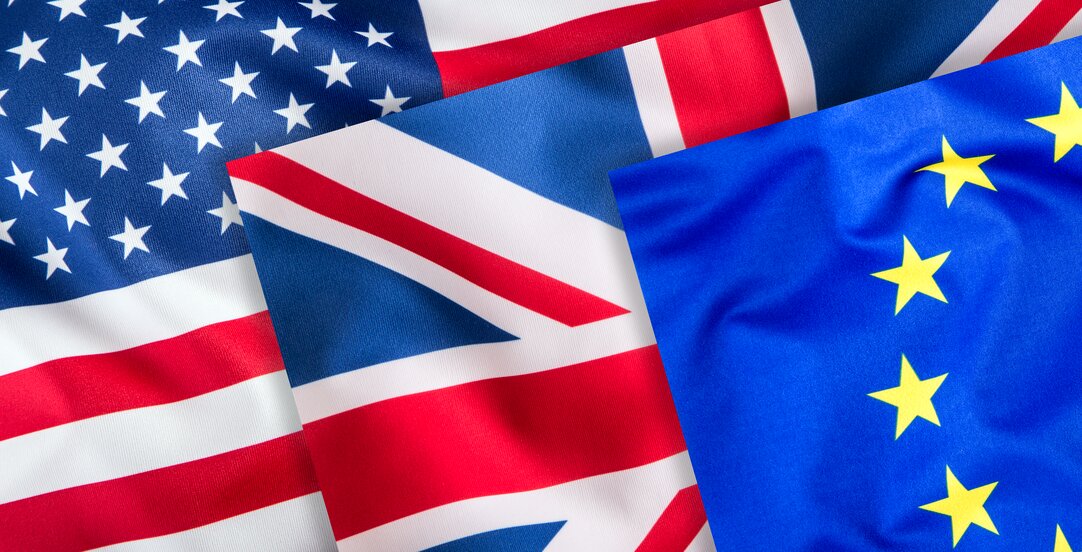Further UK and US sanctions against Russia and developments in Russian countermeasures

Since our last update on 11 April 2022, the UK has introduced new sanctions, the US has designated additional individuals end entities, and Russia has announced developments to its counter-measures. Furthermore, the EU and US have introduced certain exemptions to its sanctions regimes relating to humanitarian activities.
Reading time 6 minutes
Since our last update on 11 April 2022, the UK has introduced new sanctions, the US has designated additional individuals end entities, and Russia has announced developments to its counter-measures. Furthermore, the EU and US have introduced certain exemptions to its sanctions regimes relating to humanitarian activities.
UK sanctions
The UK has added a number of individuals to its Russia financial sanctions regime, targeting the family members, close associates and employees of oligarchs. Press releases of 13 and 14 April 2022 are available here and here. An overview of all OFSI notices, containing identifying information about the designated individuals and entities, is available here. An updated and consolidated version of the UK sanctions list can be found here.
In addition, on 14 April, Parliament adopted the Russia (Sanctions) (EU Exit) (Amendment) (No.8) Regulations 2022, which introduces the following new trade restrictions:
- Iron and steel products (import restrictions)
- Oil refining goods and technology (export restrictions)
- Quantum computing and advanced materials goods and technology (export restrictions)
- Luxury goods (export restrictions)
Under the above measures, oil refining goods and technology and quantum technology are prohibited for export, supply or transfer to, or for use in, Russia or to a person connected with Russia, along with the provision of related technical assistance, financial services and brokering services. Furthermore, the measures prohibit certain luxury goods from being exported, supplied or transferred to, or being used in, Russia, or to a person connected with Russia. Lastly, the Regulations prohibit import, acquisition, supply and delivery of certain iron and steel products originating in or consigned from Russia. Exceptions to these prohibitions are set out in detail in the legislation, and licences can be granted in very limited circumstances.
Moreover, the Department for International Trade has amended its Russia import sanctions notice (NTI 2953, available here), updating the overview of prohibitions on imports of certain goods to the UK, and setting out the licensing process.
Separately, the Department for International Trade has revised the UK General Trade Licence (Russia sanctions – Vessels) to bring aircraft and aeroengines and the provision of insurance services relating to aviation within the scope of the licence (see notice here).
EU sanctions
Since our last update, the EU has introduced exceptions to its Russia related sanctions so as to facilitate humanitarian activities in Ukraine. The aim is to safeguard principled humanitarian action by impartial humanitarian actors addressing the humanitarian needs of the civilian population in Ukraine. The relevant legal acts are published here and press release here.
Yesterday, on 20 April 2022, the President of the European Council remarked that he in respect of sanctions had identified "additional elements" to propose to the European Council to be able to maintain the maximum pressure on Russia. The press statement is available here.
US sanctions
Yesterday, on 20 April, OFAC added additional individuals and entities to its SDN List for being involved in attempts to evade Russia related sanctions. Information about the designated individuals and entities, who are now subject to blocking sanctions, is available here. The Treasury press release is available here.
Since our last update, OFAC has furthermore issued certain General Licences for its Russian sanctions regime. These authorise certain transactions that would otherwise be prohibited.
First, on 12 April 2022, OFAC issued a General Licence that authorises certain transactions involving JSC SB Sberbank Kazakhstan and Sberbank Europe AG.
On 19 April 2022, OFAC issued a General Licence that authorises certain transactions in support of NGO activities. OFAC also issued a fact sheet to provide an overview of existing authorisations and to make clear that Russia related sanctions do not stand in the way of agricultural and medical exports, NGO activities, the free flow of information, humanitarian assistance and other support to people impacted by Russia's aggression.
Russian countermeasures
Draft law on external administration of foreign companies related to "unfriendly states"
On 12 April 2022, draft law No. 104796-8 "On the external administration of organisations" was submitted to the Russian Duma. The law intends to allow for the external administration (and subsequent compulsory sale) of certain foreign companies that have ceased doing business in the Russian Federation following the Russian aggression against Ukraine. Notably, several changes have been made to the draft law since our previous reports of 9 March and 21 March 2022. The key points from the draft law as it stands today are presented below.
The following companies may become subject to external administration pursuant to the draft law: Companies (and affiliates of such companies), in which (i) a foreign entity related to "unfriendly states" directly or indirectly controls more than 25 % of the shares, and (ii) which have a "considerable bearing" on the stability of the economy, civil function and the defence of the rights and legal interests of Russian citizens, either in the whole of the Russian Federation, or in a specific part thereof.
A company will be considered to have a "considerable bearing" if it either:
- produces essential goods;
- has a dominant position in the market pursuant to Russian antitrust legislation, or is a natural monopoly;
- is the sole producer of a certain type of product, or the sole supplier of products for which there are no Russian equivalents, and is included in the Russian register of sole suppliers in accordance with Russian legislation;
- employs no less than 25% of the working population in a specific locality;
- cannot shut down business without potentially causing environmental and/or ecological catastrophes, loss of human life, breakdown of life-support facilities, transport or social infrastructure, energy, industry or communication objects or other socially significant objects;
- cannot shut down business without potentially causing destabilisation, or a groundless increase in consumer prices for the goods or services produced or offered by the company;
- participates in a significant production chain.
According to the draft law, a Russian court may impose external administration on a company meeting any of the above conditions, if the company has taken actions to stop, suspend or scale-down its business in violation of Russian legislation. Public announcements after 24 February 2022 that the company will shut down its business without any obvious economic reason, termination of significant contracts and/or termination of more than one third of the company's employees are specifically listed as actions that will allow a Russian court to set the company under external administration.
The draft law is currently being prepared for a first plenary review and vote (out of three) by the Russian Duma. The committee responsible for further review of the draft law in the Russian Duma has been given a deadline to submit its comments by 11 May 2022.
Expansion of payment-in-rubles scheme to other export commodities and products
On 18 April 2022, Putin ordered the Russian Government "to accelerate the transition of Russia's foreign trade to rubles and to the national currencies of other countries that are reliable business partners". According to Putin, the rejection of "unreliable currency jurisdictions" was a task of strategic importance in order to ensure the economic safety of Russia. Putin further stressed the necessity of reorientating Russian exports of energy resources from Western to southern and eastern markets, including by preparing the necessary infrastructure for such exports.
Removal of Russian stocks from overseas exchanges
On 16 April 2022, Putin signed a law that requires Russian companies to remove their stock listings from overseas exchanges. According to the law, Russian companies must delist their depositary receipts from international stock exchanges and convert them into local securities by 5 May 2022.
Legislative proposal criminalising compliance with Western sanctions still under review in the Russian Duma
In our update of 5 April 2022, we noted that the Russian Duma had decided to consider changes to the Russian Criminal Codex that will criminalise compliance with Western sanctions, and that these changes were likely to be implemented shortly. As of 21 April 2022, the draft legislation is still under review by a committee of the Russian Duma.
-
WR Sanctions Alerts provide you with updates on material developments in the country-specific sanctions programmes implemented by the US, the UN, the UK, the EU and Norway. We will not provide updates on mere prolongations, without material changes, of existing sanctions programmes, nor on any listings or de-listings of individuals/entities placed on implemented sanctions lists. Please note that the WR Sanctions Alerts are provided as general information and do not constitute legal advice.
